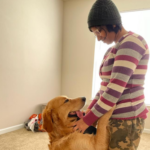
Relocating Pets with Separation Anxiety: Top 5 Things to Watch Out For
Relocating with pets can be a daunting task, especially if your furry friend experiences separation anxiety. Pets, like humans, form strong emotional bonds with their surroundings and the people they love. Moving to a new place can trigger anxiety and stress in our four-legged companions.
Here are the top 5 things to watch out for when relocating pets with separation anxiety.
Increased agitation and restlessness :
Pets with separation anxiety may exhibit increased agitation and restlessness during the relocation process.
Watch out for excessive barking, whining, pacing, or destructive behavior. These signs indicate that your pet is struggling to cope with the changes, and it’s essential to provide reassurance and comfort.
Changes in Eating and Drinking Habits:
Stress can affect a pet’s appetite and hydration levels. Keep an eye on any changes in their eating and drinking habits. Loss of appetite, excessive thirst, or refusal to eat are signs of stress. Encourage them to eat and drink, and if the problem persists, consult a veterinarian for guidance.
Litter Box or House Training Issues:
Cats may start avoiding their litter boxes, and dogs might have accidents indoors due to anxiety. This behavior is their way of expressing distress. Be patient and understanding, and offer positive reinforcement when they use their designated areas correctly. Avoid punishment, as it can worsen their anxiety.
Excessive Clinginess or Withdrawal:
Some pets become overly clingy when stressed, seeking constant attention and reassurance. Others may withdraw, avoiding interaction and hiding. Both behaviors are signs of anxiety. Provide a balance of attention and alone time, allowing them to adjust at their own pace. Create a safe space with familiar items to help them feel secure.
Physical Symptoms of Stress:
Stress can manifest in physical symptoms, including digestive issues, fur loss, or skin problems. Monitor your pet’s physical health closely. If you notice any unusual symptoms, consult a veterinarian promptly. Addressing their physical well-being is essential to managing their overall stress levels.











